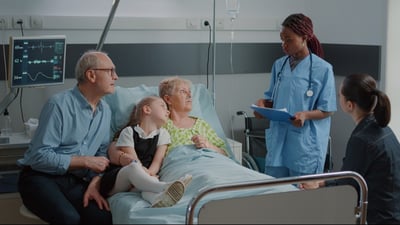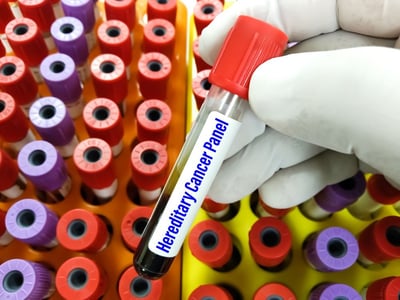Colorectal Cancer



Relevance: High
Most relevant for: People diagnosed with cancer
Topic: Acupressure for cancer symptom relief
Acupressure is a safe treatment that can be used to relieve some symptoms of cancer and side effects of treatment. Light pressure applied to key points on the body may help with fatigue, sleep, nausea and possibly other symptoms as well. (Posted 8/1/24)
Este artículo está disponible en español.
READ MORE ›


Relevance: Medium-High
Most relevant for: People with advanced HER2-positive cancer
Topic: The drug Enhertu is FDA-approved for any advanced or metastatic HER2-positive tumors
The FDA granted accelerated approval of Enhertu for people with any HER2-positive tumor that is metastatic or cannot be surgically removed. Eligible patients must have had previous treatment such as chemotherapy or hormone therapy. (Posted 7/19/24)
Este artículo está disponible en español.
READ MORE ›


Relevance: Medium-High
Most relevant for: Cancer patients
Topic: Experts call for early palliative care for cancer patients
People with cancer need support and care not only at the end of life but from the time of diagnosis. At the 2024 American Society of Clinical Oncology (ASCO) annual meeting, the organization’s president urged cancer healthcare professionals to make palliative care central to cancer treatment. (Posted 7/17/24)
Este artículo está disponible en español.
READ MORE ›


Relevance: Medium
Most relevant for: People with Li-Fraumeni syndrome
Personal Story: Living a full life with Li-Fraumeni syndrome
This XRAY review is about a five-time cancer survivor who has an inherited mutation in the TP53 gene. People with inherited mutations in TP53 have Li-Fraumeni syndrome, which is linked to a very high lifetime risk for many types of cancer. Here we share his inspiring story and provide more information on Li-Fraumeni syndrome. (Posted 4/16/24)
Este artículo está disponible en español.
READ MORE ›


Relevance: Medium-High
Most relevant for: People with colorectal cancer
Update: News from the FDA - Two new metastatic colorectal cancer treatments
The FDA recently approved two new treatments for metastatic colorectal cancer. (Posted 3/22/24)
Este artículo está disponible en español.
READ MORE ›


Relevance: High
Most relevant for: People diagnosed with cancer who have not yet had genetic testing
Study: Genetic testing among people with cancer can find mutations that may affect treatment and prevention
Despite national guidelines recommending genetic testing, less than 10 percent of eligible patients had genetic testing within two years after their cancer diagnosis. Among those who had testing, 10-30 percent had an inherited mutation that could affect their medical care. (Posted 3/15/2024)
Este artículo está disponible en español.
READ MORE ›


Relevance: Medium-High
Most relevant for: Young adults
Article: Red flags for colorectal cancer in young adults
The rate of colorectal cancer in young adults has been increasing. Researchers in this study identified four signs or “red flags” for colorectal cancer before age 50 (considered to be early onset colorectal cancer). Recognizing these red flags can help diagnose and treat colorectal cancer earlier. (Posted 10/23/23)
Este artículo está disponible en español.
READ MORE ›


Relevance: High
Most relevant for: People interested in genetic testing.
Article: Genetic testing and the future of medicine
An article published in Katie Couric Media discusses genetic testing and how it can impact health. The author talked with Dr. Robert Steiner, a doctor who specializes in genetics. He talked about genetic testing and how the results can affect health and change lives. (Posted 9/28/23)
Este artículo está disponible en español.
READ MORE ›


Relevance: Medium-Low
Most relevant for: People with solid tumors.
Article: Promising drug for cancer treatment begins clinical trials
Researchers at City of Hope are testing a new type of cancer treatment drug. When tested in animals and cells taken from human cancers, this new drug prevented the growth of many types of cancer. Initial clinical trials in people have just started. (Posted 9/7/23)
Este artículo está disponible en español.
READ MORE ›


Relevance: Medium-High
Most relevant for: Young adults
Topic: Colorectal cancer is on the rise in young adults: What Millennials and Gen Zs need to know
The rate of colorectal cancer among young adults in the US has been increasing since the 1990s. Scientists are trying to figure out why. (Posted 8/15/23)
Este artículo está disponible en español.
READ MORE ›